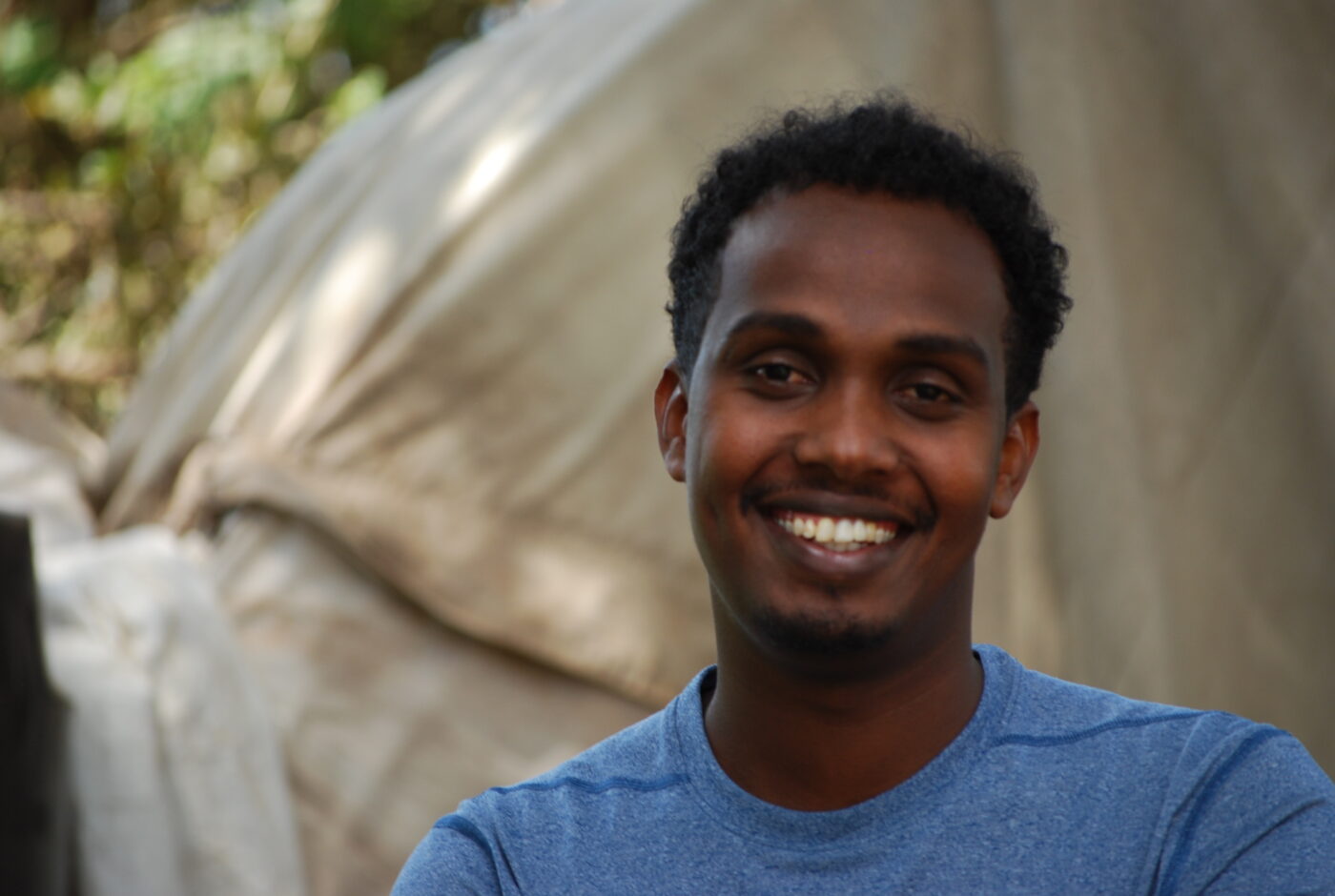Ibrahim Hassan, born in Thika in 1989. Coordinator of the following interventions: food security programme, economic empowerment, health, and teen moms.

Hassan still remembers how he felt when he started working at Macheo in 2016 in the Children’s Home. “We had baby Ann there, who was severly malnourished and abandoned. After 1 week you could already see a massive difference, let alone after 2 weeks. After a month it was a totally different child. It is so mesmerizing to experience how a child flourishes. After 6 months, she got adopted.”
Hassan has a mission: to propagate the importance of the first 1,000 days in the life of a child, from conception to two years of age. This timeframe is literally of vital importance. Hassan: “By making sure the brains and the body develop in a healthy way, you really make a difference for someone. And for the country the child grows up in. By doing this, you deal with the future straight away.”
Already in his early years, Hassan learns how important it is to grow up in a safe, loving, healthy environment. His mother passes away at a young age: his father takes care of the 10 children – 7 boys and 3 girls. “Dad did everything for us, and later we contributed in our own ways. My dad is a role model for me. He lives in South Sudan now, and I miss him terribly.”
Another important lesson he has learned: it does not matter to which tribe or religion a person belongs, as long as you can trust each other. “Our neighbors had all sorts of backgrounds, and were all kinds of different people. We were muslim. My father needed the neighbors quite often to be able to combine caring for us with his job at Del Monte. He needed to trust them, so we did too. This taught us to accept differences, and gives you a wider outlook on life.”
The world changes at a rapid pace. While old structures vanish, the world is getting increasingly individualistic. Hassan thinks this is worrisome, but tries to stay positive: “It is easier for young people now to see how things go elsewhere, and to take with you what is going well there”.
After 3 years at Macheo, Hassan became a coordinator. “A large responsibility. You decide for others, which is difficult. The budget is oftentimes not sufficient to meet all the needs. So you have to be smart, and creative, to give as much help as you can for as little cost as possible. So I go to the hospital to negotiate the fees to have a child treated there. To negotiate, about a child! To be successful, you have to know the people, persevere, to have a network and invest in it. I wanted a challenging job: well, I have one now!”
Negotiating with governmental institutions is getting increasingly difficult. The government does not have the money either, so they are getting stricter. “So I have to be even more brilliant to find a solution. And to look ahead, plan in advance. Money or not: we háve to help.”
He can enjoy his successes. “That is what drives me: when I see a child thriving thanks to the help of Macheo. You cannot get that feeling with just making money.” Hassan also sees the economic empowerment intervention as a valuable part of his job. “To enable people to make their own money gives them dignity. Nothing is as beautiful as dignity. Unfortunately, it is not an exception for mothers and young girls to prostitute themselves to buy food for their child or just sanitary pads. When you can ensure this is no longer necessary because the family can make their money in a different way, you reduce their vulnerability and the vicious cycle of misery is broken. To achieve these things is my goal in life”.
Charitable work must be done with care! Have you become enthusiastic about the way we work too? Join us! We can achieve much more together.
More information Donate now